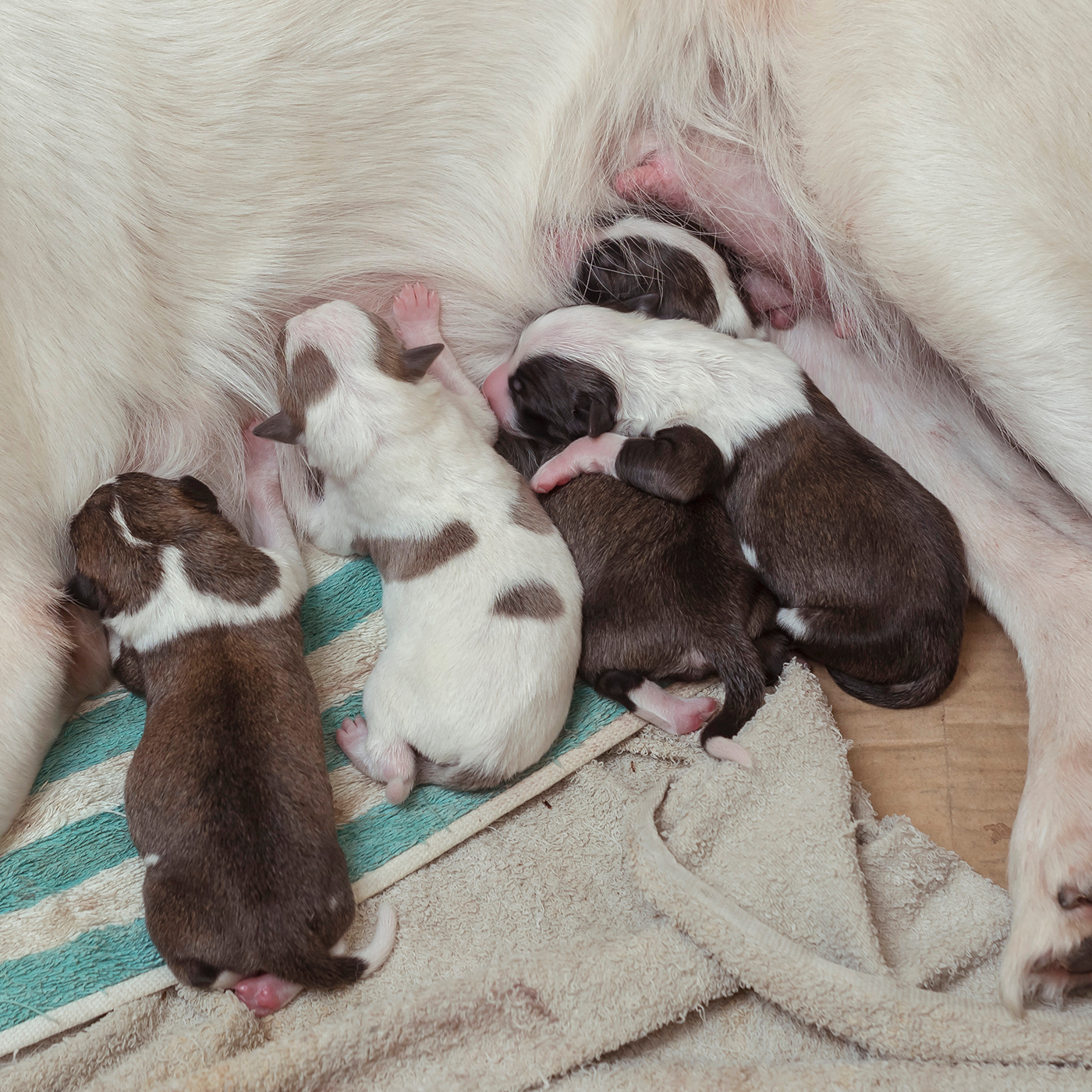The nutrition and nutritional health of a bitch should be considered well in advance of her planned mating. Research has shown that the muscular health of a bitch affects the ease of birth, and unhealthy weight (over and under) is linked to potential reproductive disorders.
Nine weeks of gestation
The normal gestation period for dogs is approximately 63 days. During the first two thirds, meaning for the first five weeks, the bitch’s diet can be kept the same as before mating: familiar, high-quality food served in normal maintaining portions. The first five weeks are when the developing fetuses absorb all the necessary building blocks from the mother through the placenta. A sufficient supply of fatty acids, minerals, and vitamins (E, B, and C) must be secured for the mother. In particular, the mother will need twice the vitamin E during pregnancy to protect her immune system and fetuses.
The mother will require much more energy in the final third of the pregnancy when the fetuses accelerate their development. For large litters, the increase in energy required could be up to 20 per cent, and the dog may eat up to one and a half times its normal amount while pregnant. Meanwhile, the effective size of the mother’s stomach will be reduced because the growing fetuses take up space in her abdomen. At this stage of the pregnancy, more and smaller portions should be served. The food must also be easy to digest and relatively dense – the dog needs more of the essentials for growth in a smaller serving size. At this stage of the pregnancy, many will introduce complete nutrition developed for puppies, but in the case of raw food, the amount of vegetables and bones is reduced and the amount of meat, organs, and eggs is increased.
Pregnant dogs should not be allowed to become overweight, so even though the amount of food is gradually increased from week 6 onwards, the amount should not be unlimited. Big changes in the dog’s diet should be avoided during pregnancy and nursing because sudden changes in feeding affect the gut flora and nutrient absorption, which may lead to gastric issues.
Immunity from breast milk
The quality of food is more important than ever during nursing. Nursing mothers need lots of energy, and their diet must include readily digestible animal protein (>30%), fat (>20%), and calcium. The portions should be bigger, and feeding should take place 3–4 times a day. Large litters may require up to four times the normal food intake. Water is also very important because it contributes to the mother’s ability to produce milk, and food should be served with plenty of water.
The mother should have a rich gut microbiome – it is essential for building up her puppies’ microbiomes. Feeding microbiome supplements to pregnant and nursing dogs has been shown to reduce the risk of the puppies developing early-onset immune and metabolic disorders.

Easily digested food provides energy for the mother and helps her keep producing milk.
